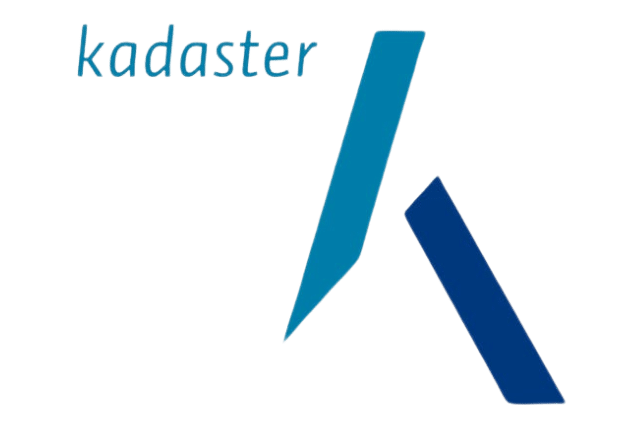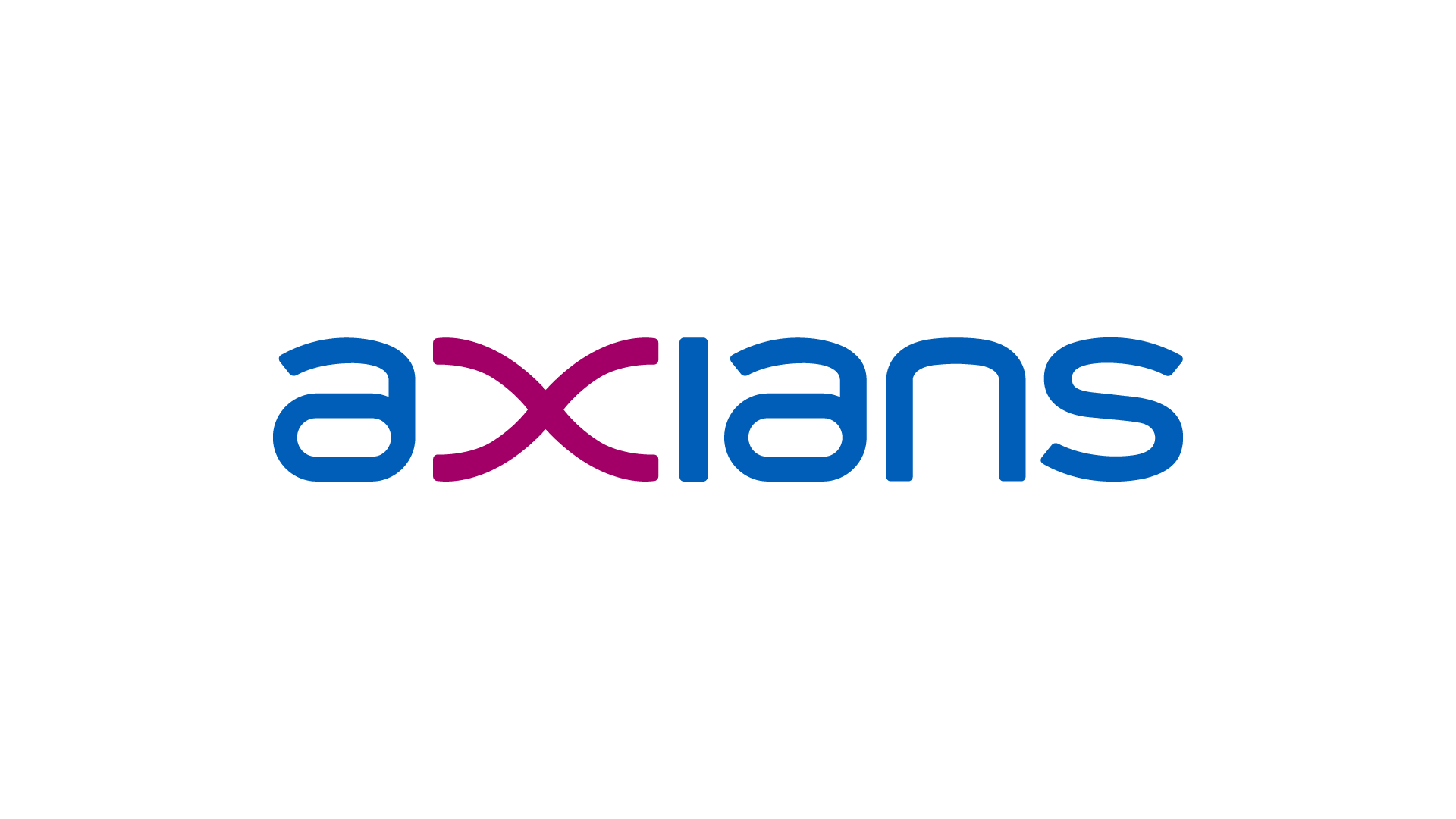Over de Relational Databases on Azure (DP-300)
De gespecialiseerde training Administering Relational Databases on Microsoft Azure (DP-300) is ontworpen voor databaseprofessionals die willen leren hoe ze relationele databases kunnen beheren binnen Microsoft Azure. Deze DP-300 training biedt een diepgaand inzicht in de aspecten van databasebeheer binnen een cloudomgeving, waarbij de nadruk wordt gelegd op de relationele databaseoplossingen binnen Microsoft Azure, zoals Azure SQL Database en Azure SQL Managed Instance.
De DP-300 training belicht het toenemende belang van relationele databases in de cloud, met name binnen Microsoft Azure. Je leert over de unieke uitdagingen en kansen van databasebeheer in Microsoft Azure, waaronder schaalbaarheid, beschikbaarheid en beveiliging. De training behandelt hoe de geavanceerde hulpmiddelen en diensten van Microsoft kunnen worden ingezet om databases efficiënt en effectief te beheren.
Een kernaspect van de DP-300 training is het bieden van een diepgaande verkenning van databasebeheer en -onderhoud binnen Microsoft Azure. Dit omvat het beheren van databaseprestaties, het waarborgen van hoge beschikbaarheid en noodherstel, en het implementeren van gegevensbeveiligingsstrategieën. Je leert de beste werkwijzen voor het beheren van relationele databases binnen een cloudomgeving.
De DP-300 training biedt een praktische leerervaring met veel praktijkoefeningen. Je leert met realistische situaties te werken en je leert gebruik te maken van de hulpmiddelen en technologieën van Microsoft Azure om jouw kennis in praktijk te brengen. Deze praktische aanpak zorgt ervoor dat jij de benodigde vaardigheden en vertrouwen ontwikkelt om effectief databases te beheren binnen Microsoft Azure.
Let op: Er is geen examenvoucher inbegrepen bij de DP-300 training. Echter kun je de DP-300 examenvoucher eenvoudig bij ons aanschaffen.
Voor wie is de DP-300?
De DP-300 training is met name geschikt voor de volgende mensen:
- Databasebeheerders en databaseontwikkelaars
- Databasebeheerders en databaseontwikkelaars die hun vaardigheden willen uitbreiden naar het beheer van relationele databases in de cloud zullen veel voordeel uit deze training halen.
- Deze training biedt jou de benodigde kennis en vaardigheden om effectief databases te beheren en te optimaliseren binnen Microsoft Azure.
- ICT-professionals gericht op cloudtechnologieën
- ICT-professionals die zich richten op het werken met cloudtechnologieën en die meer willen weten over cloudgebaseerd databasebeheer, zullen ondervinden dat deze training een essentiële toevoeging is aan hun vaardighedenportfolio.
- De training helpt jou om de overgang te maken naar databasebeheer binnen een cloudomgeving en biedt inzichten in de unieke aspecten van werken in een Microsoft Azure-omgeving.
- Systeem- en netwerkbeheerders
- Systeem- en netwerkbeheerders die hun kennis willen uitbreiden op het gebied van databasebeheer in de cloud kunnen door middel van deze training leren hoe ze Azure-specifieke databaseoplossingen kunnen implementeren en beheren. Dit vergroot hun vermogen om effectief ondersteuning te bieden aan de ICT-infrastructuur van hun organisatie.
- Data engineers en data-analisten
- Data engineers en data-analisten die met grote datasets werken en geïnteresseerd zijn in het verkennen van cloudgebaseerde databasemogelijkheden zullen van deze training profiteren.
- De training biedt jou de kennis en vaardigheden om relationele databases in Microsoft Azure te gebruiken voor gegevensopslag, dataverwerking en data-analyse.
Leerdoelen van de DP-300
Door de DP-300 training te volgen zul je de volgende kennis en vaardigheden verkrijgen:
- Azure SQL-oplossingen plannen, implementeren en configureren.
- Databaseprestaties bewaken en een database en zoekopdrachten afstemmen voor optimale prestaties.
- Een High Availability-oplossing plannen en configureren.
Aanbevolen voorkennis DP-300
Voordat jij deelneemt aan deze training raden wij aan dat jij over de volgende kennis en vaardigheden beschikt:
- Essentiële basiskennis van Microsoft Azure
- Om deel te nemen aan specialistische trainingen op het gebied van Microsoft Azure is het van belang dat jij beschikt over degelijke basiskennis die je opdoet in de training Microsoft Azure Fundamentals (AZ-900). Deze fundamentele kennis is essentieel voor een diepgaand begrip van de clouddiensten binnen Microsoft Azure, inclusief de architectuur en -beveiligingsprincipes die de basis vormen voor verdere specialisatie in Microsoft Azure.
- Grondige kennis van data binnen Microsoft Azure
- Naast basiskennis van Microsoft Azure heb je ook grondige kennis nodig die je opdoet in de training Microsoft Azure Data Fundamentals (DP-900). Dit geeft jou inzicht in de kernconcepten van dataverwerking, -opslag en -beheer binnen Microsoft Azure, wat van cruciaal belang is voor trainingen en zelfstudiepakketten die zich richten op geavanceerde onderwerpen die gerelateerd zijn aan data.
Onderwerpen van de DP-300
DP-300 | Module 1: De rol van de Azure Database Administrator
In deze module wordt de rol van een databasebeheerder in de Azure-omgeving verkend. Er wordt ook basisinformatie gegeven die relevant is voor de algehele inhoud. Dit omvat een overzicht van de verschillende op SQL Server gebaseerde opties (SQL Server in een VM, Managed Instances en Azure SQL Database).
Deelnemers leren waarom het compatibiliteitsniveau een cruciaal concept is bij het werken met SQL-databases in Azure. Daarnaast maken deelnemers kennis met andere databaseplatforms die beschikbaar zijn op Azure, naast die gebaseerd op SQL Server, met name PostgreSQL en MySQL.
Onderwerpen:
- Rollen binnen het Azure Dataplatform.
- Azure Database Platforms en opties.
- SQL Server-compatibiliteitsniveaus.
- Azure Preview-functies.
Lab: Werken met de Azure Portal en SQL Server Management Studio
- Een SQL Server voorzien op een Azure Virtual Machine.
- Verbinding maken met SQL Server en een back-up herstellen.
Na het voltooien van deze module van de DP-300 training kunnen deelnemers:
- De rol van Azure Database Administrator begrijpen in relatie tot andere rollen binnen het dataplatform.
- De belangrijkste verschillen beschrijven tussen de op SQL Server gebaseerde database-opties.
- Het verschil tussen versies en compatibiliteitsniveaus uitleggen.
- Weten hoe ze preview-functies kunnen in- en uitschakelen.
DP-300 | Module 2: Het plannen en implementeren van dataplatformbronnen
Deze module introduceert methoden voor het implementeren van dataplatformbronnen in Azure. Je leert over opties voor het upgraden en migreren van bestaande SQL-databases naar Azure. Je leert hoe je Azure-resources kunt opzetten om SQL Server te hosten op een Virtual Machine, een Managed Instance, Azure SQL Database en PostgreSQL of MySQL.
Je leert hoe je kunt bepalen welke opties het beste zijn op basis van specifieke vereisten, waaronder de behoeften op het gebied van hoge beschikbaarheid en disaster recovery (HADR). Ook leer je hoe je resourcevereisten kunt berekenen en sjablonen kunt maken voor implementaties.
Onderwerpen:
- SQL Server implementeren met IaaS.
- SQL Server implementeren met PaaS.
- Open Source Database-oplossingen implementeren op Azure.
Lab: Implementeren van Azure SQL Database
- Een VM implementeren met een ARM-sjabloon.
- Resources configureren die nodig zijn voordat je een database maakt.
- Een Azure SQL Database implementeren.
- De Azure SQL Database-instantie registreren in Azure Data Studio en de connectiviteit valideren.
- PostgreSQL of MySQL implementeren met een clienttool om de connectiviteit te valideren.
Na het voltooien van deze module van de DP-300 training kunnen deelnemers:
- Resources handmatig implementeren.
- Een geschikte databaseoplossing aanbevelen op basis van de vereisten.
- Databasebronnen configureren.
- Een strategie evalueren en implementeren voor het migreren van een database naar Azure.
DP-300 | Module 3: Een veilige omgeving implementeren
Deze module onderzoekt de methoden voor het beveiligen van je SQL Server-database, evenals een Azure SQL-database. Dit omvat een overzicht van de verschillende op SQL Server gebaseerde opties en de verschillende Azure-opties voor het beveiligen van Azure SQL Database en de databases binnen Azure SQL Database.
Deelnemers leren waarom beveiliging essentieel is bij het werken met databases. Ook maken deelnemers kennis met andere databaseplatforms die beschikbaar zijn op Azure, naast die gebaseerd op SQL Server, met name Azure Database voor MariaDB/MySQL/PostgreSQL.
Onderwerpen:
- Database-authenticatie configureren.
- Database-autorisatie configureren.
- Beveiliging voor data in rust implementeren.
- Beveiliging voor data tijdens transport implementeren.
- Nalevingscontroles implementeren voor gevoelige gegevens.
Lab: Een veilige omgeving implementeren
- Een firewallregel op serverniveau configureren met de Azure Portal.
- Toegang autoriseren tot Azure SQL Database met Azure Active Directory.
- Geavanceerde gegevensbeveiliging en gegevensclassificatie inschakelen.
- Toegang tot databaseobjecten beheren.
Na het voltooien van deze module van de DP-300 training kunnen deelnemers:
- De verschillen begrijpen tussen Windows-, SQL Server- en Azure Active Directory-authenticatie.
- Zowel oplossingen voor gegevensversleuteling in rust als gegevensversleuteling tijdens transport beschrijven en configureren.
- Een oplossing voor gegevensgevoeligheid implementeren.
DP-300 | Module 4: Operationele resources monitoren en optimaliseren
Deze module leert je over resource-optimalisatie voor je databases die zijn gecreëerd met behulp van IaaS- of PaaS-services. De module behandelt ook het monitoren van server- en hardware-resources. Je maakt kennis met de verschillende tools die beschikbaar zijn voor het monitoren van prestaties en het vaststellen van een basislijn. Je leert hoe je prestatiestatistieken kunt interpreteren voor de belangrijkste resources. Ook leer je hoe je databaseprestaties kunt oplossen met Azure SQL Database Intelligent Insights.
Onderwerpen:
- Baselines en prestatiemonitoring.
- Belangrijkste oorzaken van prestatieproblemen.
- Resources configureren voor optimale prestaties.
- Gebruikersdatabaseconfiguratie.
- Prestatiegerelateerde onderhoudstaken.
Lab: Resources monitoren en optimaliseren
- CPU-problemen isoleren.
- Query Store gebruiken om blokkering van problemen te observeren.
- Fragmentatieproblemen detecteren en corrigeren.
Na het voltooien van deze module van de DP-300 training kunnen deelnemers:
- Activiteiten monitoren en vergelijken met een basislijn.
- Onderhoudstaken definiëren die verband houden met prestaties.
- Belangrijkste oorzaken van prestatieproblemen identificeren.
- Resources configureren voor optimale prestaties.
- Een gebruikersdatabase configureren voor optimale prestaties.
DP-300 | Module 5: Queryprestaties optimaliseren
Query-uitvoeringsplannen zijn mogelijk het belangrijkste aspect van databaseprestaties. Het verbeteren van slechte plannen is zeker een gebied waar een kleine inspanning enorme verbeteringen kan opleveren.
Hoewel hardwareproblemen de queryprestaties kunnen beperken, levert hardware-upgrades meestal slechts prestatieverbeteringen van 10-20% op, hooguit. Vaker komen databasebeheerders queries tegen die niet zijn geoptimaliseerd, verouderde of ontbrekende statistieken hebben, ontbrekende indexen, of slechte ontwerpkeuzes in de database die ertoe leiden dat de database-engine meer werk moet verrichten dan nodig is om resultaten voor een bepaalde query te leveren.
Het verbeteren van de plannen kan soms prestatieverbeteringen van 100-200% of zelfs meer opleveren, wat betekent dat een query na verbetering van een plan met betere indexen of statistieken twee of drie keer zo snel kan worden uitgevoerd! Deze module biedt gedetailleerde informatie over hoe je de prestaties van individuele queries kunt analyseren en bepalen waar verbeteringen kunnen worden aangebracht.
Onderwerpen:
- Begrijpen van SQL Server-queryplannen.
- Verkennen van prestatiegerichte databaseontwerpen.
- Prestatieverbeteringen evalueren.
Lab: Problemen met queryprestaties oplossen
- Problemen met het databaseontwerp identificeren in AdventureWorks2017.
- Probleemgebieden isoleren in slecht presterende queries in AdventureWorks2017.
- Query Store gebruiken om regressie te detecteren en te behandelen in AdventureWorks2017.
- Query-hints gebruiken om prestaties te beïnvloeden in AdventureWorks2017.
Na het voltooien van deze module van de DP-300 training kunnen deelnemers:
- Queryplannen analyseren en probleemgebieden identificeren.
- Mogelijke queryverbeteringen evalueren.
- Tabel- en indexontwerpen beoordelen.
- Bepalen of query- of ontwerpwijzigingen een positief effect hebben gehad.
DP-300 | Module 6: Taken automatiseren
Een gemeenschappelijk doel voor databasebeheerders in veel omgevingen is om zoveel mogelijk van hun repetitieve taken te automatiseren. Dit kan variëren van het gebruik van scripting om een back-upproces te automatiseren, tot het bouwen van een volledig geautomatiseerd waarschuwingssysteem.
Deze module biedt details over het automatiseren van taken om het werk van de databasebeheerder te vereenvoudigen. Methoden omvatten het plannen van taken voor reguliere onderhoudstaken, evenals beheer en configuratie van meldingen voor het slagen of falen van taken of niet-voltooide taken.
Onderwerpen:
- Automatische implementatie instellen.
- Geplande taken definiëren.
- Uitgebreide gebeurtenissen configureren.
- Azure PaaS-resources beheren met behulp van geautomatiseerde methoden.
Lab: Taken automatiseren
- Een Azure-sjabloon implementeren vanuit een Quickstart-sjabloon op GitHub.
- Meldingen configureren op basis van prestatiestatistieken.
- Een Azure Automation Runbook (of elastische taak) implementeren om indexen opnieuw op te bouwen op een Azure SQL Database.
Na het voltooien van deze module van de DP-300 training kunnen deelnemers:
- Resources implementeren met geautomatiseerde implementatiescripts.
- Geplande taken aanmaken.
- Meldingen en waarschuwingen aanmaken.
- Automatisering configureren voor PaaS-services.
DP-300 | Module 7: Een omgeving voor hoge beschikbaarheid en disaster recovery plannen en implementeren
Gegevens moeten beschikbaar zijn wanneer het bedrijf ze nodig heeft. Dit betekent dat de oplossingen die de gegevens hosten, moeten worden ontworpen met beschikbaarheid en herstelbaarheid in gedachten. Stel dat je werkt voor een bedrijf dat widgets verkoopt, zowel in winkels als online. Je belangrijkste toepassing maakt gebruik van een zeer transactionele database voor bestellingen.
Wat zou er gebeuren als de server of het platform waarop de transactionele database wordt gehost, een probleem had waardoor deze om de een of andere reden niet beschikbaar of ontoegankelijk was? Welke impact zou dat hebben op het bedrijf? Als de juiste oplossing is geïmplementeerd, zou de database binnen een redelijke tijd beschikbaar zijn met minimale inspanning, waardoor het bedrijf vrijwel zonder onderbrekingen kan doorgaan.
Deze module en het bijbehorende lab behandelen het configureren, testen en beheren van een oplossing voor hoge beschikbaarheid en disaster recovery (HADR) in Azure, voor zowel Infrastructure-as-a-Service (IaaS) als Platform-as-a-Service (PaaS) implementaties. Deze module behandelt niet alleen de basisvereisten, maar ook de verschillende opties die beschikbaar zijn om HADR te bereiken.
Onderwerpen:
- Strategieën voor hoge beschikbaarheid en disaster recovery.
- IaaS-platform- en databasetools voor HADR.
- PaaS-platform- en databasetools voor HADR.
- Databaseback-up en herstel.
Lab: Een omgeving voor hoge beschikbaarheid en disaster recovery plannen en implementeren
- Een Always On-availabilitygroep maken.
- Geo-replicatie inschakelen voor Azure SQL Database.
- Back-up naar URL maken en herstellen van URL.
Na het voltooien van deze module van de DP-300 training hebben deelnemers inzicht in:
- Het verschil tussen recovery time en recovery point objectives.
- De beschikbare HADR-opties voor zowel IaaS als PaaS.
- De overwegingen voor het plannen en configureren van HADR-oplossingen, inclusief hoe back-up en herstel werkt.
- De factoren die een HADR-strategie vormen.
- Hoe je een oplossing voor hoge beschikbaarheid kunt configureren via een hands-on lab.
























